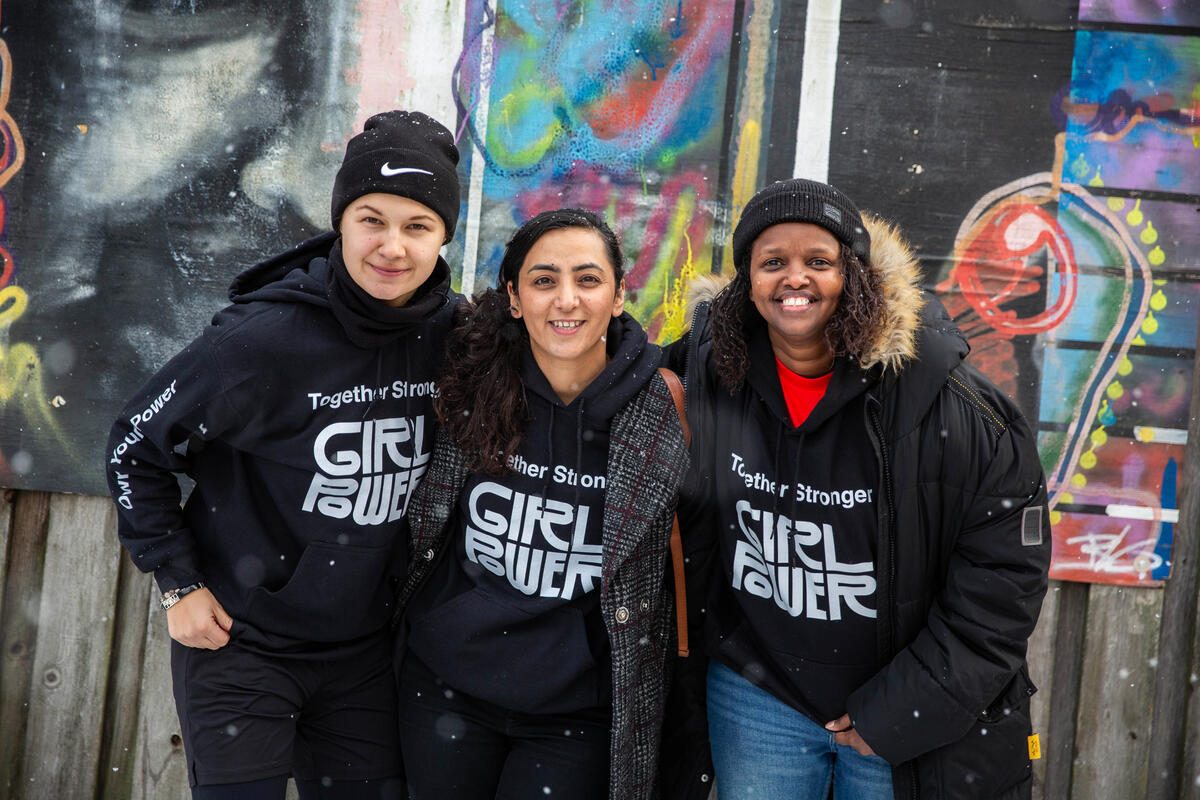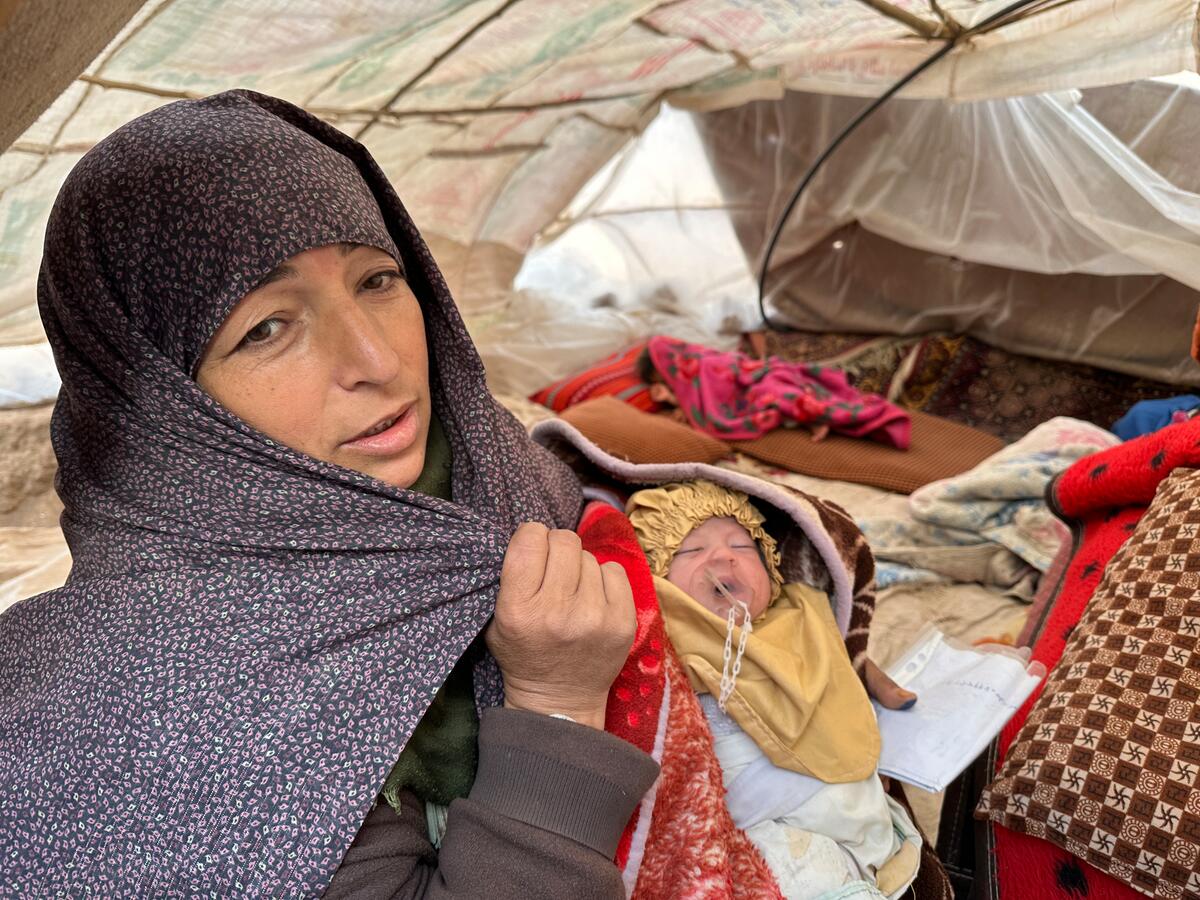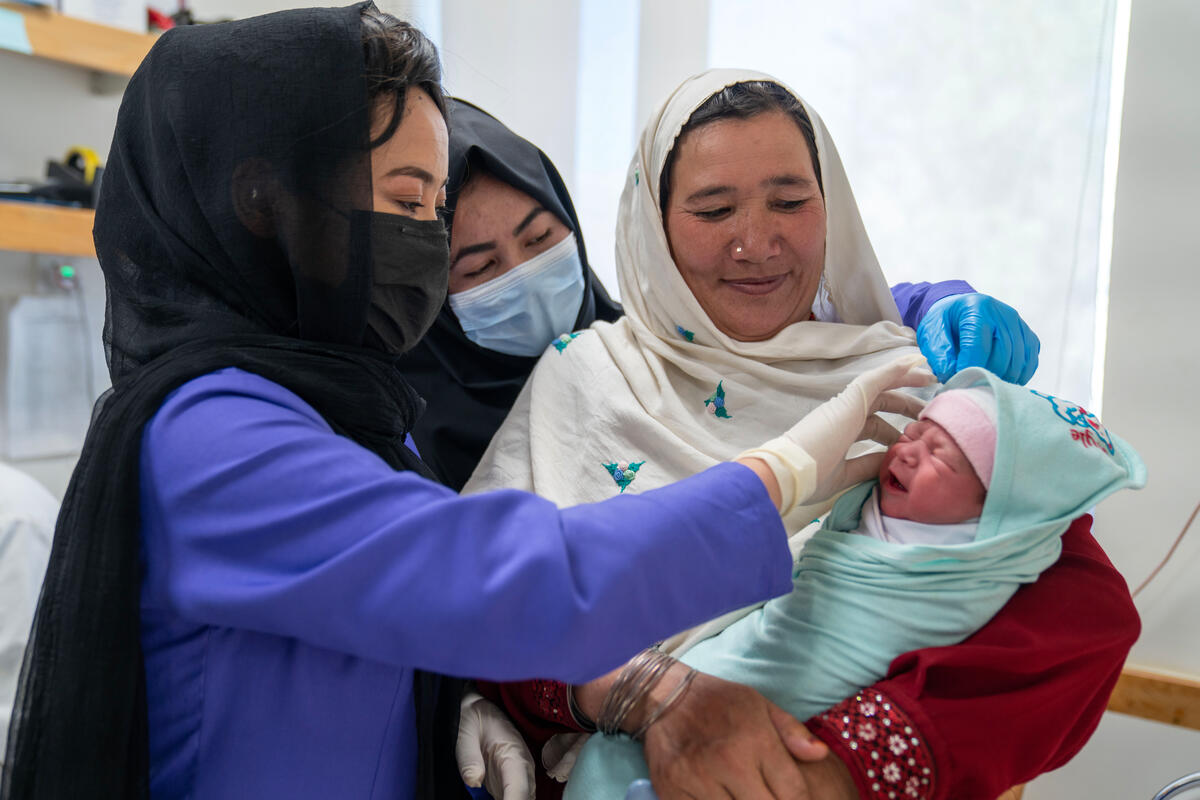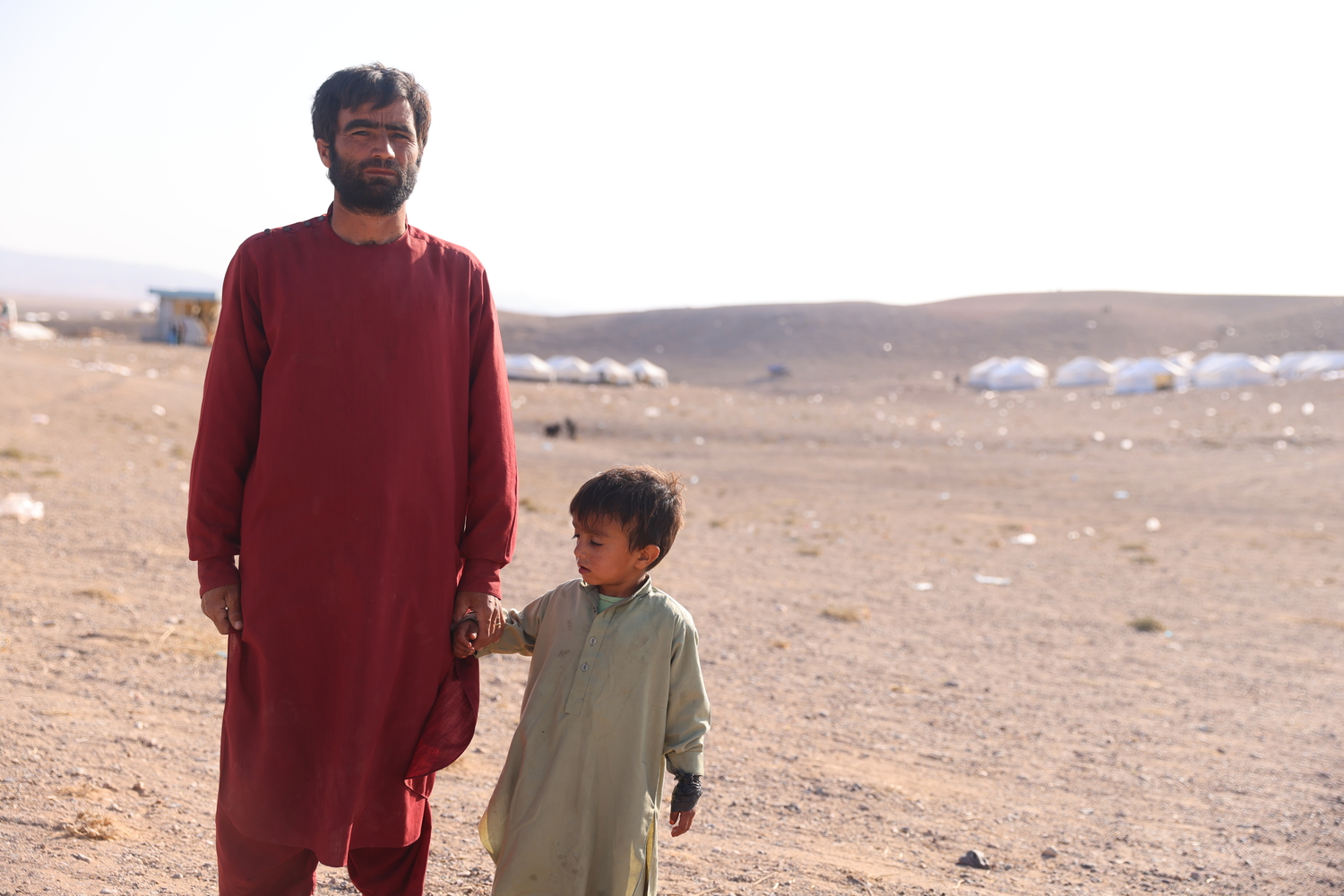Afghanistan Humanitarian Update No. 66
Afghanistan Humanitarian Update No. 66
December 17, 2002
At A Glance:
- UNHCR launches 2003 Afghan appeal
- Winterisation effort goes into high gear
UNHCR launches 2003 Afghan appeal
UN High Commissioner for Refugees Ruud Lubbers announced today (Tuesday, Dec. 17) that UNHCR is seeking $195 million to help 1.5 million Afghans return home next year and to assist Afghan refugees who remain in neighbouring countries.
UNHCR's 2003 appeal for Afghanistan and its Afghan refugee programmes in seven surrounding countries was presented at a meeting of the Afghanistan Support Group of key donor countries in Oslo, Norway.
Lubbers told the meeting that UNHCR needed the funds to support the planned return of 1.2 million refugees, including 600,000 people from the Islamic Republic of Iran, 500,000 Afghans from Pakistan, and 100,000 from other states. The UN refugee agency also plans to help an estimated 300,000 Afghans displaced within their country to go back to their original homes. Afghanistan still has some 700,000 internally displaced people (IDPs) driven from their homes by two decades of war and the worst drought in living memory. Another 250,000 have already returned to their homes with support from relief agencies.
UNHCR this year signed agreements on return to Afghanistan with Afghanistan, Iran and France, and expects to sign a similar agreement with Pakistan soon. The agreements provide a blueprint for the return of Afghans over the coming years. A separate memorandum of understanding on the return of rejected asylum seekers has also been signed with the United Kingdom.
In line with its "4 Rs" concept of repatriation, reintegration, rehabilitation and reconstruction - the four key elements of any post-conflict recovery - UNHCR plans to better fit its work into the longer-term effort of development agencies and various parts of the Afghan government.
The refugee agency will continue to provide shelter assistance to returning Afghans during 2003, with 60,000 new shelters planned. UNHCR also plans to fund various water projects in returnee areas throughout the country, as well as other assistance programmes.
Afghans opting to repatriate under the programme run jointly by UNHCR and the Afghan government will continue to receive a transport allowance of between $5 and $30, plus a family kit containing plastic tarpaulin, soap, and hygienic supplies and wheat flour from the UN World Food Programme.
More than 1.8 million Afghans have returned home since UNHCR and the Afghan government launched the return programme last March. According to government estimates, there are still some 4 million Afghans, including both refugees and migrant workers, outside their homeland. Most Afghans living outside their country reside in Pakistan and Iran.
Winterisation effort goes into high gear
Afghans were taken by surprise last week by unseasonably cold weather that saw temperatures drop to as low as -15°C, particularly in southern Kandahar Province, which usually has milder winters.
UNHCR and its humanitarian partners in Afghanistan are pre-positioning supplies of various items, including tents, plastic tarpaulins, blankets, and other supplies to help up to 550,000 people who may face particular hardship this winter, including 290,000 recent returnees and up to 260,000 IDPs.
In southern Afghanistan, distribution has started in Nimroz and Kandahar provinces, where 32,000 blankets have already been distributed to IDPs in five makeshift camps around Spin Boldak. UNHCR also purchased 56,000 litres of fuel in Uzbekistan which is destined for IDPs in Kandahar province, while 1,800 family kits from the International Organization for Migration are also being sent to the south.
UNHCR now has more than 146,000 blankets and quilts in stock, covering more than 75 percent of the estimated needs this winter. UNICEF has agreed to provide more blankets. Some 28,000 quilts are in production under a UN refugee agency cash-for-work scheme in central Afghanistan. Stocks of plastic tarpaulins are now pre-positioned throughout the country, while 10,000 tents are on hand and another 5,000 are available on demand from the refugee agency's stockpiles in neighbouring Pakistan should Afghans face urgent shelter needs over the winter months.
In northern Afghanistan, vulnerable communities in remote areas have been identified and winterisation items have been pre-positioned in five warehouses. Distribution of urgently-needed items to needy families is underway in Baghlan and Faryab provinces. In addition, UNHCR is providing transportation support for the distribution by the Afghan government of 100 metric tons of wheat donated by the Russia's Emergency Ministry.
In western Afghanistan, winter items have been pre-positioned in Badghis and Ghor, with distribution to needy Afghans in Farah provinces starting this week, as well as in Maslakh IDP camp in Herat.
Aid workers have completed their work identifying needs in eastern Afghanistan's Kunar and Laghman provinces and will start their survey in Nangarhar province. In central Afghanistan, distribution of winter emergency items to the most vulnerable returnees, including up to 7,000 families in Kabul city, is scheduled to start shortly.
Heating and fuel:
Over recent weeks, more than 15,100 multi-fuel stoves have been produced under a UNHCR-funded cash-for-work scheme in workshops in northern and south-eastern Afghanistan, while another 25,000 multi-fuel stoves are under production in the central, northern and eastern regions.
In southern Afghanistan, 21,000 of the required 30,000 kerosene stoves are now in place, while in western Afghanistan stove production began this week. Deliveries of coal by UNHCR's partner ACTED in central and northern regions are expected to start next week. The US government's Office of Foreign Disaster Assistance (OFDA) unit has confirmed funds for the Shelter for Life coal initiative in south-eastern and eastern Afghanistan. Some 250,000 litres of kerosene are now in place in southern Afghanistan, and UNHCR tentatively plans to distribute kerosene through its partners in western Afghanistan.
Shelter rehabilitation:
Immediate support for rural housing for needy returnees is being provided under UNHCR's shelter rehabilitation initiative, in coordination with the Ministry of Rural Reconstruction and Development and other agencies.
More than 6,000 UNHCR-funded shelter units were completed during November, while another 13,000 kits require only a roof. Shelter construction by families participating in the 2002 shelter programme is most advanced in western Afghanistan, where 96 percent of the units are finished or nearly completed.
The total number of assembled or nearly finished shelter kits now stands at 30,000 - 75 percent of all the units distributed this year by the German NGO GTZ under UNHCR's shelter programme.
In partnership with the Ministry of Urban Development and Housing, UN-HABITAT is responsible for shelter projects in urban areas.








